PRESS RELEASE
29 November, 2017
“The future of agriculture and food” deserves better than a technocratic discussion about a proposal to renationalize.
The “New Delivery Mechanism”, which is central in the European Commission’s communication on the future of the Common Agricultural Policy (CAP), presented on 29 November, would pave the way for a lesser role for Europe, greater complexity for national administration, competition distorsions for economic actors and less efficiency when it comes to climate and environmental ambition. However, “the future of agriculture and food”, and the challenges facing the European food industry as a whole, instead require Europe to deliver a new and ambitious CAP, which in turn requires the Commission to fulfil its responsibility, not shirk it.
Pushing subsidiarity to its limit would simplify matters for the Commission only. It would transfer the policy burden to Member State administrations. It would threaten farmers’ livelihoods by removing the existing level playing field and exposing them to internal economic and environmental dumping. It would turn the clock back on environmental ambitions because Member States would be able to sacrifice standards to gain in competitiveness.
Farm Europe will continue to be a source and standard bearer for innovative and ambitious proposals for a European agriculture that leads the world by pioneering simultaneous economic and environmental performance ‒ in particular by harnessing the digital revolution. In the coming weeks and months, the campaign “Keep the C” will contribute to highlight the importance of a truly common and efficient European policy. If it is to meet the challenges of tomorrow, agriculture needs more Europe, not the abandonment of all collective ambition.
The “New Delivery Mechanism”, what is being proposed?
- The current situation. Today, 70% of the CAP budget – the 1st pillar – is devoted to community measures, with eligibility criteria that apply to all Europe’s farmers (in particular for basic aid, green aid and coupled payments). This support functions as a coherent whole, both economically, by supporting farm incomes, and environmentally, by ensuring the use of environmentally sound agricultural practices. The whole of Europe is subject to a common core of environmental standards, which all farmers abide by. The room for manœuvre available to Member States is limited and governed by common European rules that are agreed ex ante (i.e. prior to implementation). In addition, 30% of the CAP budget (2nd pillar) is administered by Member States using a flexible programmatic project-based approach. The aim is to take local characteristics and the diversity of local contexts, such as environmental or investment factors, into account.
- What is being proposed? With the “New Delivery Mechanism”, the European Commission is envisaging giving Member States individual discretionary power to determine the rules for allocating and managing both Pillar 1 and Pillar 2 aid. 100% of the CAP budget would be managed nationally, instead of under a common European framework. The Commission’s role would be limited to supervising national strategies and, where applicable, imposing penalties in cases where a Member State fails to meet its main targets as set out in national performance indicators. Member States or regions would be accountable for the use of funds. They would devise their own strategies as well as the eligibility criteria for obtaining CAP funding – including economic and environmental criteria. The CAP would resemble an ‘agricultural and rural cohesion policy’, with 27 different, even divergent, agricultural strategies.
What would be the implications of the ‘New Delivery Mechanism’?
The economic implications:
- Under the guise of subsidiarity, this idea means, in reality, a transfer of the CAP’s reactor core to the national level, and as such would constitute a significant step towards a renationalizationof the CAP. Why?
- In practice, negotiations at community level would be limited to agreeing on a few macro objectives that individual Member States would need to meet in order to access the community budget. Europe’s policymakers would agree on overarching performance indicators for the CAP as a whole.
- In practice, the distribution of the bulk of funding between sub-sectors and between farmers, and in particular the ‘direct payments’ envelope would no longer be managed at community level ‒ decisions would be taken either nationally or
- A genuine risk: each Member State or region would be free to concentrate its CAP envelope on a handful of priority sub-sectors in order to try to weaken the competition in other Member States and get the upper hand in a target market using directly or indirectly subsidized prices ‒ thus undermining value creation.
- A question: Who could believe that a European civil servant undertaking an ex post analysis of a strategy adopted after a democratic vote in a national/regional assembly would have sufficient political weight to block a project, even if it conflicted with the general European interest? As experience with the Cohesion Fund has shown, the Commission is only able to obtain marginal adjustments.
- A question: A substantial proportion of the CAP budget is currently used to support farmers’ incomes. Arrangements for this are based on European criteria. Considering the diversity of territories, sub-sectors and types of farm, is a single farm income target level realistic (a Treaty objective)? Would there be equitable treatment on a European scale? Would there be punitive clearance of accounts and penalties for those Member States in which agricultural income fell? Could the latter ever be credible? We might be forgiven for thinking that the architects of this proposed Mechanism have not studied its implications with sufficient due diligence.
The environnemental implications :
- In agriculture, the environment is a key factor in farm competitiveness, a fact which has in the past led to an overuse of natural resources, especially in the 80s and 90s. Climate change and environmental goals are going to take centre stage among the challenges that tomorrow’s agriculture must meet ‒ so if Europe were to abandon the ambition of common standards, what would the consequences be?
- In practice, abandoning the acquis of a common set of rules at the European scale – i.e. the greening of the CAP – would amount to abandoning the clear framework that creates a level playing field for all Europe’s farmers, while ensuring the sector as a whole meets its environmental responsibilities. And it is currently possible for farmers to go further by participating in rural development programmes that offer positive and complementary project opportunities.
- In practice, by abandoning the principle of a common set of rules that condition access to CAP funding, the European Commission is abdicating its responsibility to ensure that European agriculture develops and grows in a more sustainable way on the scale of the Continent. Deviations in sensitivity to these issues would inevitably lead to divergences in the degree of ambition and competition would lead to a vicious circle of policies bidding down environmental standards.
- An example: in order to meet overarching European targets, Member States would be able to concentrate their efforts on a handful of high value (in terms of target figures) natural areas – natural parks or Natura 2000 protected areas – and use this as cover to reintensify (production) elsewhere. The point being that the quality of the environmental cannot be reduced to an arithmetic average of national or regional indicator values.
- A question: the digital revolution currently forging ahead offers an opportunity to combine simplification with environmental ambition. Why not seize this opportunity ? Do we really want to squander a chance to jointly devise and implement an intelligent CAP, one which is genuinely innovative, and which combines environmental sustainability with economic competitiveness for the benefit of all Europe’s territories?


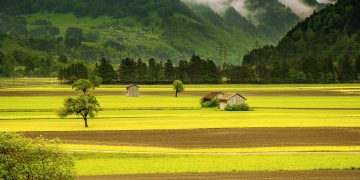
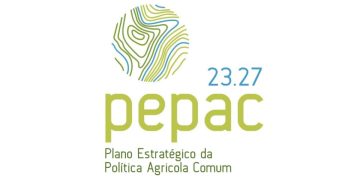
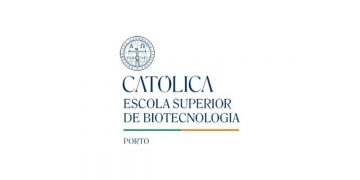
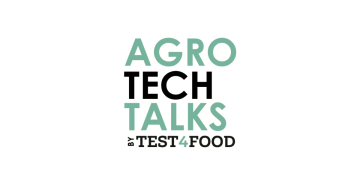















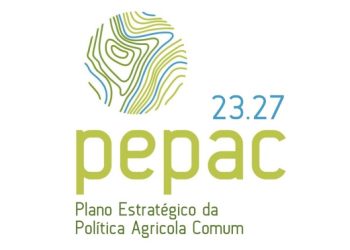



























Discussão sobre este post